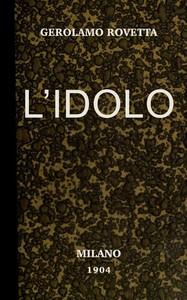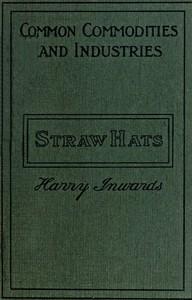Read this ebook for free! No credit card needed, absolutely nothing to pay.
Words: 22803 in 6 pages
This is an ebook sharing website. You can read the uploaded ebooks for free here. No credit cards needed, nothing to pay. If you want to own a digital copy of the ebook, or want to read offline with your favorite ebook-reader, then you can choose to buy and download the ebook.


: The Imperial Crown by Raabe Wilhelm Wooff Michael Translator - Germany History Late Middle Ages 1254-1517 Fiction
Translator: Michael Wooff
The Imperial Crown
A story by Wilhelm Raabe
On the fifty-third day of the siege, one and a half thousand years after the fall of Rome as a republic and nine hundred and seventy seven years after Odoacer the Barbarian had exiled the boy emperor Romulus Augustulus to the estate that had once belonged to Lucullus in Catania, Constantinople had fallen. God placed two empires and twelve kingdoms in the hands of the son of Murad, Mehmet the Second. What Christendom in its comatose dullness, tearing itself to pieces in wars of religion and feuds between peoples and their princes, had been unable to defend itself against, had now happened. The great bogeyman had finally arrived.
On Saint Lawrence's day in the year 1453 an old man sits in a narrow room in a house on the Banner Mountain in Nuremberg writing what we are about to read. The low window looks out on a small vegetable patch and up to the town wall beyond. The small room is bare and without any ornament, but the sun shines down on the garden, the day is pleasant and the sky is blue.
It is quiet and yet not quiet. The writer's room does indeed face the town and the streets, but a strange noise and a humming sound buzzes through the air and the brave old high protective walls and towers resonate most singularly. The writer's room is also filled with a humming and ringing and wondrous rushing. Someone insecure and not in control of their thoughts and their quill would find it hard today in Nuremberg to execute calligraphy with stylus, ink, paper and parchment.
The grey-haired old man now and again holds his head in his hands and listens to the ruckus, but it does not have the power to disturb him. His eye only looks to the sky for a moment with just a little less pensiveness. He does not, however, put down his quill for such trifles.
He has talent as a scribe and has something to say of lasting value despite the sounds and interplay of colours of the world outside.
Tolle! Lege! Take and read! Let us see what Saint Augustine has to say on the subject: "I heard come from a neighbouring house a soft and gentle voice repeating itself as if a boy or girl were speaking: Tolle! Lege! Take and read! And my face was drained of colour and I wondered if these words were part of a children's game but could not remember ever having heard them before. And, suddenly, tears came to my eyes and I stood up interpreting this as a voice from heaven!" That's it in a nutshell! Thanks to this great privilege, by the grace of God, I too heard this siren voice, half that of a child, half that of a messenger of the Most High and discovered the Logos that made sense of worldly hubbub and gave me peace. Like Augustine I no longer breathed the air of bread and circuses, of the military might of the Emperor and his erstwhile glory nor indeed the splendour that once was Rome.
I heard and saw--things wonderful to tell of and describe. While I was still young I saw a bright light in the gloom. While I was still young my life also underwent a change.
What does the great bell Benedicta in the church of Saint Sebaldus want with its solemn tolling? What do the other bells in all the belltowers of my home town want by ringing so? I can hear their tones, both near and far, intermingle with each other. I can hear my brothers and sisters making their way through streets and marketplaces singing psalms and plaintive hymns. I hear the people tramp like the roar of a faraway river breaking its banks.
To the churchyard of Saint Sebaldus, to the sound of its iron clapper voice they stream as one: Vox ego sum vitae, voco vos, orate, venite! Friar Johannes Capistranus is standing in the stone pulpit outside the walls of the church to preach about the pagan victory, the fall of the Eastern Empire, the coming of the Anti-Christ and the end of the world. His call to repentance has been tolled out by all the bells. In all the towns through which he has passed people have lit fires and thrown on them with cries and sobs their ephemeral vain things: dice and board games, little bells and sledges, quilted hoods and pointed shoes. This they will do today too in Nuremberg, rid themselves a hundredfold of aids to sensuality and find themselves beset by courtly love and the pride of life yet again tomorrow as they were yesterday and are today.
Free books android app tbrJar TBR JAR Read Free books online gutenberg
More posts by @FreeBooks


: The History of the 36th (Ulster) Division by Falls Cyril - World War 1914-1918 Regimental histories Great Britain; Great Britain. Army. Division 36th






